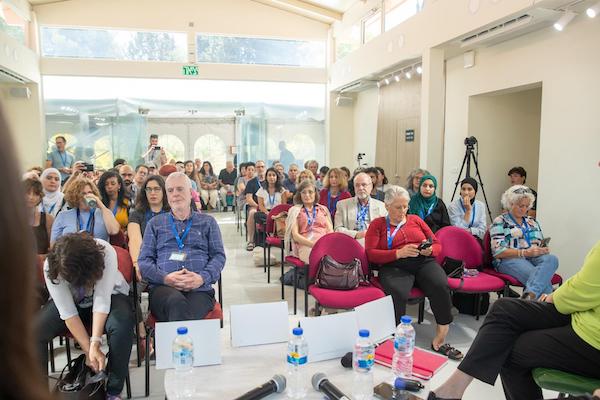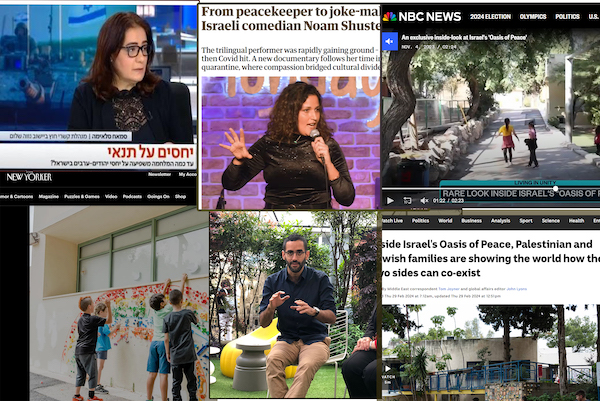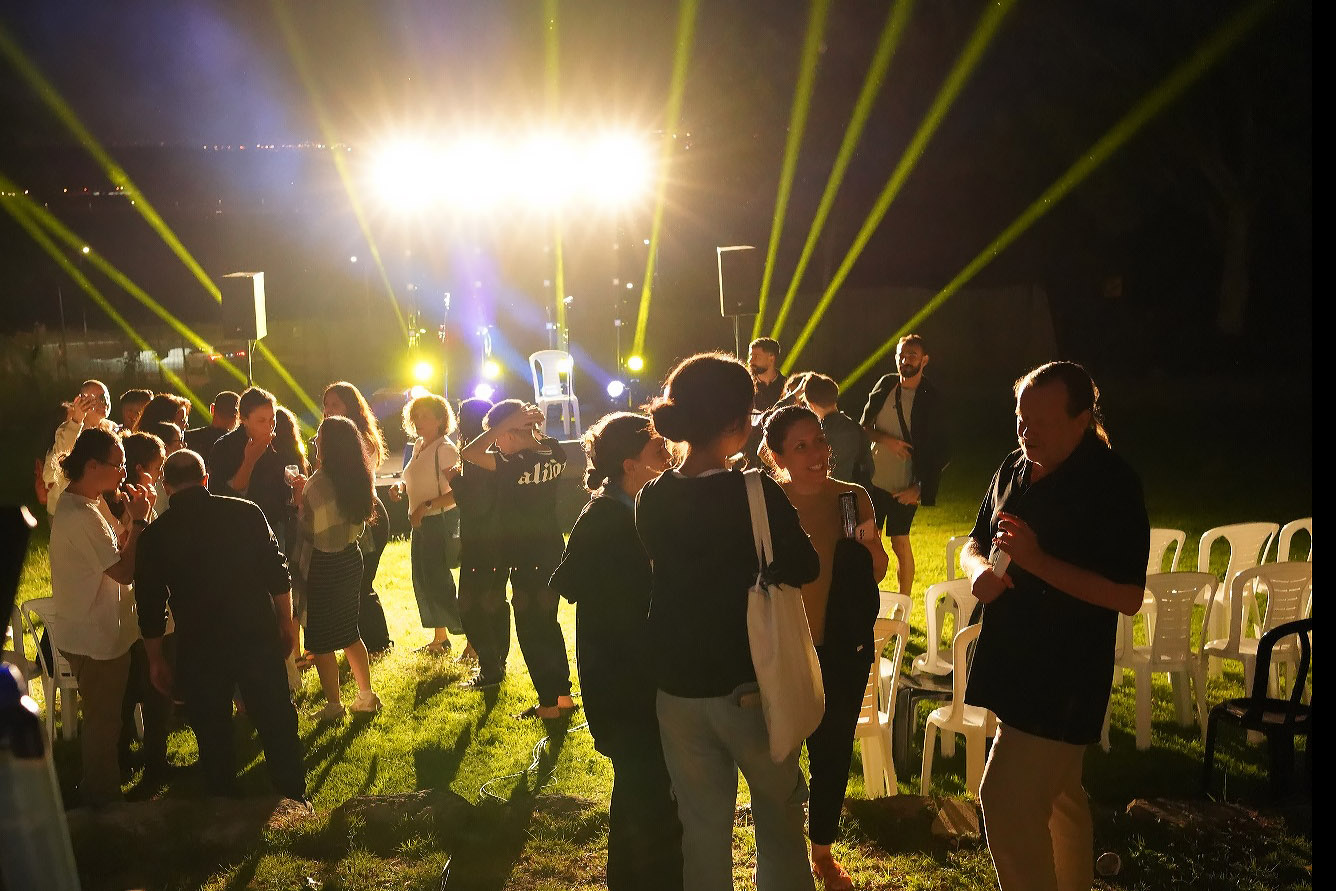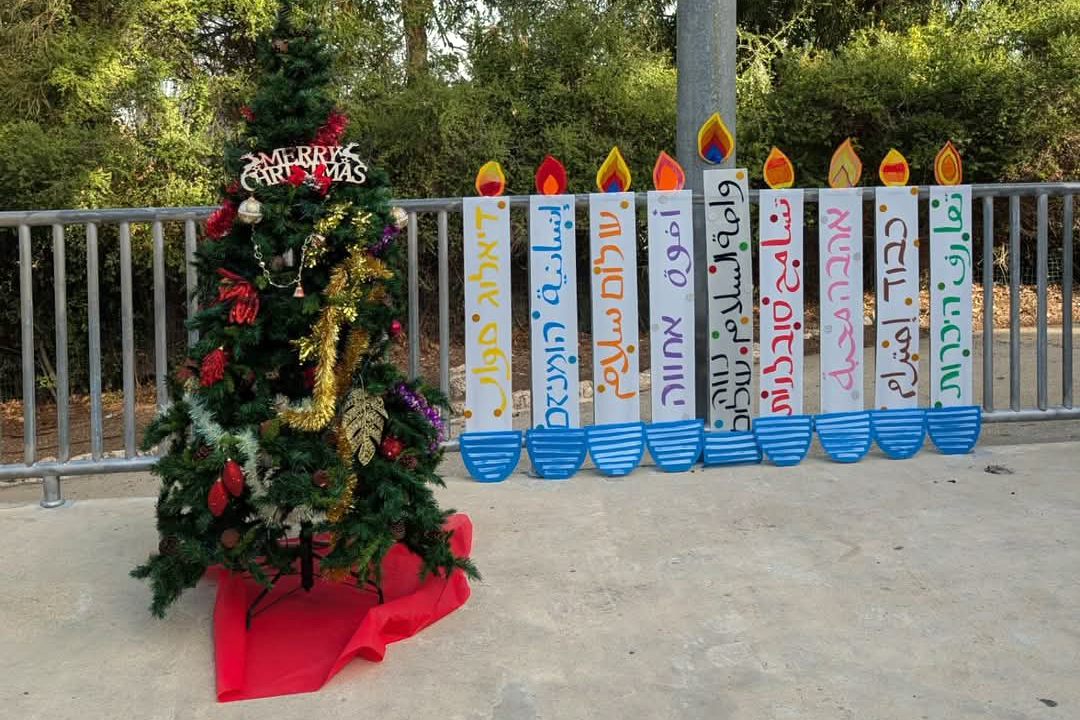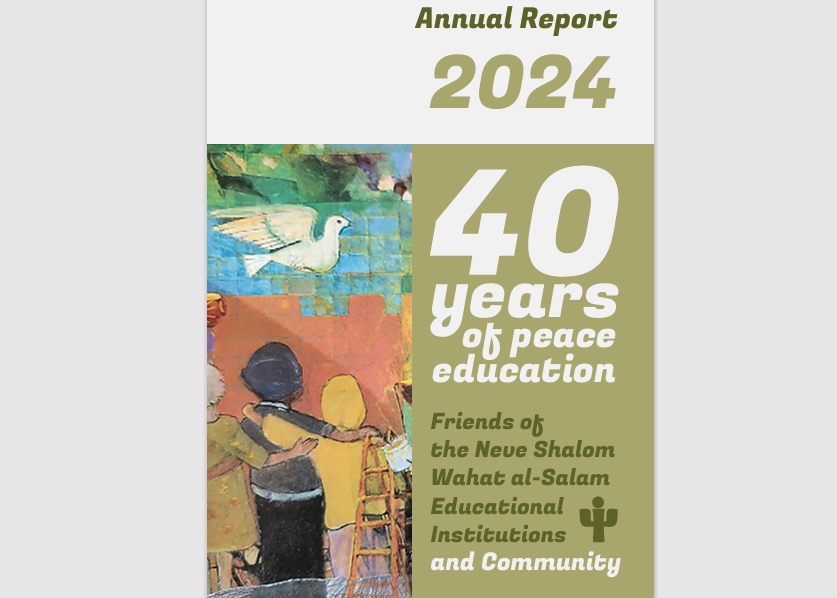Palestinians and Israeli Jews living in Europe and the US left their home countries for a variety of reasons, but those reasons often include a desire to leave the ongoing conflict behind. So it was not a given that expats from both groups would sign up for an online dialogue course, nor that the group would insist on holding the sessions on time, despite the fact that the starting date of the course was Oct. 7, 2024.
That date created a challenge for the group’s facilitators, who must keep the dialogue sessions calm, respectful and safe. In addition, they were running the course online – a platform that creates its own challenges for sessions that are designed to take place in small, intimate groups.
The course members did meet face-to-face, in Berlin, for an intensive several days of talks and activities that created, many participants later reported, feelings of community. In addition, they admitted to reconnecting with their identities and with efforts to bring peace and justice to their people. As well, they grappled, as groups and individuals, with their role in the ongoing conflict back home and their ability to influence any outcomes from a distance.
Following the dialogue sessions, two members of the group (a Palestinian and a Jewish Israeli) the “Clean Shelters Initiative,” in Germany, assisted by other members of the course. This initiative raised funding to establish the Zomi Shelter Center and sanitary facilities in Gaza.
The course was featured in popular European media, and was the subject of a presentation in at an event in Munich hosted by Bellevue di Monaco entitled “The Palestinian-Israeli Conflict: building understanding through dialogue.”
Subhead: Annual Alumni Conference
Some 70 participants from all the courses offered over the years in the School for Peace attended the Annua Alumni Conference the end of May. Even more – around 100 – attended the panel discussion with Dr. Areen Hawari of the Arab Center for Applied Social Research and Israel Frey, an ultra-orthodox, left-wing journalist who had been set upon by right-wing mobs for daring to pray for Palestinian victims of the war.
The gallery was open during the event, so that everyone could view the art and consider the message of the exhibit: “Abnormal” featuring photos taken by women in Lod that document the lack of environmental justice in the city. At the end of the first day, participants also saw a documentary film: No Other Land, a 2024 directed by Basel Adra, Hamdan Ballal, Yuval Abraham and Rachel Szor. The film, which premiered and won awards in Berlin’s International Film festival, depicts the struggles of struggles of a young man in Masafer Yatta (South Hebron hills) and the Jewish Israeli journalist who befriends him.
In between, the participants engaged in a series of uni-national and bi-national dialogue sessions, asking themselves what can be done in today’s bloody, toxic situation. Not surprisingly, there were no clear answers, but the participants went back home with a lot of food for thought and new commitment to activism for peace and equality.
More reflections on the conference will follow.
